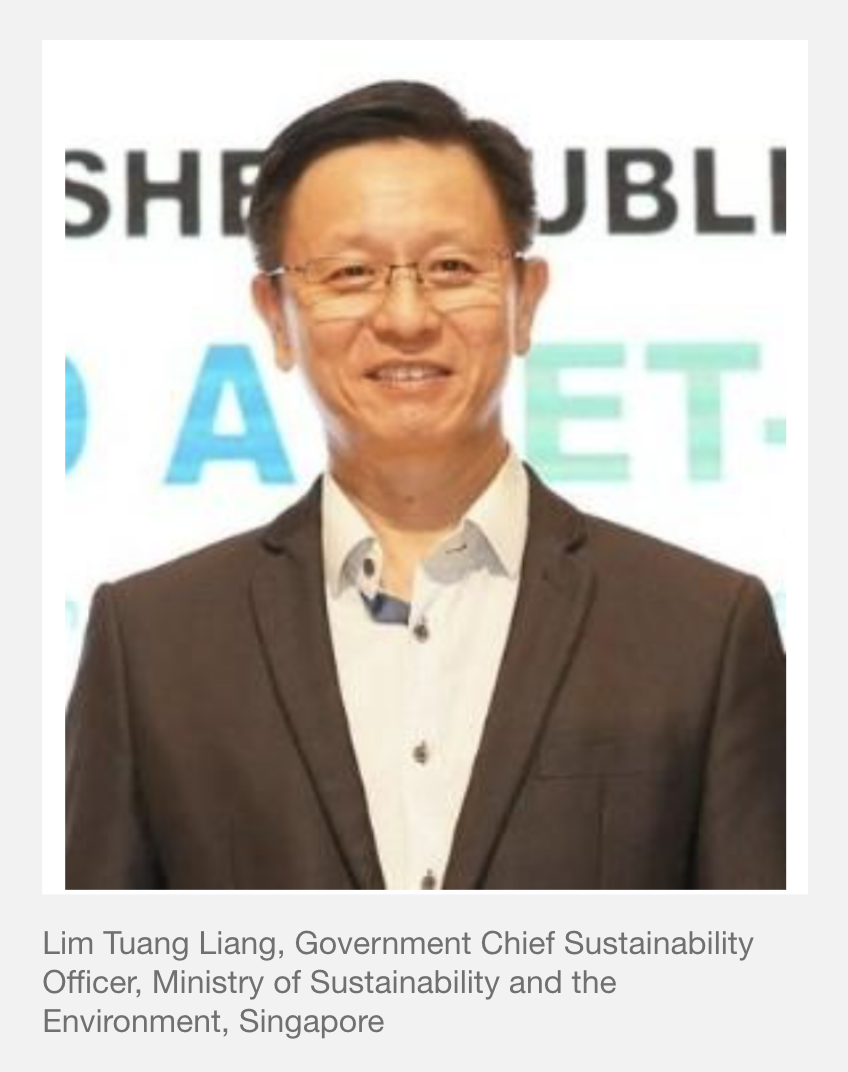By choosing to use eco-friendly materials and designing products that are energy-efficient and modular, engineers can play a bigger role in Singapore’s transition to a net-zero future.
These shifts in the design of products and services are critical in advancing sustainability, said Lim Tuang Liang in his maiden speech as Singapore’s first Government Chief Sustainability Officer, as he sought to drive home the message that engineers are an important part of the journey.
Addressing more than 1,200 in-person during the 2023 Charles Rudd Distinguished Public Lectures held at Singapore Polytechnic on May 25, he said: “As Engineers you have the much-needed skills to reimagine our future. To develop novel solutions to address these shifts and make a positive impact.”
For instance, using recycled aluminium instead of virgin aluminium can reduce energy consumption by 90 per cent and carbon emissions by up to 26 per cent, he said, as he also called on them to think about using smart control technologies to flatten energy demands.
He also highlighted that by making designs more modular and repairable, engineers would be helping to bring down the cost of recycling as components can be more easily separated, and the need for entire replacement of products also minimised.

Apart from adopting a shift in design, he also stressed two other shifts. First, the need for a move towards system thinking, where engineers consider the long-term implications of their choices on the larger ecosystems. Second, a change in the way value is defined, going beyond price and performance to consider value to the planet as well.
Lim was speaking at the inaugural sustainability conference on transitioning to a net-zero world. About 3,000 participants also watched the event virtually.
Jointly organised by the Institution of Engineers, Singapore (IES), Singapore Polytechnic (SP), and the World Federation of Engineering Organisations, the event was held in connection with World Engineering Day and explored four topics, namely circular economy, environmental, social and governance and green finance.
The lecture series spotlighted key strategies, challenges and trends accompanying Singapore’s endeavour to move to a circular economy, with the aim to better place engineers, businesses, students and the public to embrace a net-zero future.
Desmond Lee, Minister for National Development & Minister-in-charge of Social Services Integration who was the guest-of-honour, said the greening of Singapore’s built environment is another area where engineers are vital.
Using the Zero Energy Building (ZEB) at BCA Braddell Campus as an example, he explained that the building was retrofitted to become positive energy by using green building technologies, including a smart hybrid cooling system.
“(It) demonstrates how we can continually raise the bar on the sustainability of our buildings,” he added.
Other significant commitments to promote sustainability were also announced. IES presented a cheque of $300,000 to the National University of Singapore (NUS) for the establishment of the YC Wong‐IES Research in Construction Project Management Fund.
“This collaboration will boost standards of project management to accelerate the transformation of our built environment towards greater safety, quality and sustainability,” said Er Chong Kee Sen, IES Emeritus President and Chairman of the YC Wong-IES Research in Construction Project Management Fund.
UOB and SP also inked an agreement to support local enterprises in their adoption of sustainability solutions; and to support students on their entrepreneurship journey in the sustainability space. The organisations will also work together on joint projects to raise awareness of sustainability and to invest in activities that are environmentally positive.
IES President Dalson Chung, noted that transitioning to net-zero is not an easy feat. “We engineers can and will continue to contribute to make it happen and we invite all of you to join us to build a sustainable future for generations to come,” he stressed.
IES organises the lectures annually in honour of the late Charles Rudd, an IES member and a distinguished engineer, who had bequeathed more than $1 million to IES.
Naveen K. is a freelance writer



Tell us about your thoughtsWrite message